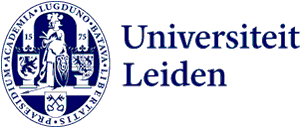
'Science works better when you are diverse'
Aske Plaat is the scientific director of LIACS, the Leiden Institute of Advanced Computer Systems. He is also an ambassador for Leiden University's LGBT+ Network. His enthusiasm shines through when he explains why.

'Diversity? For me, that starts with Alan Turing. Turing is the founder of Computer Science, that’s what our institute is all about. Turing was a scientist and also a war hero. In World War II, he worked at Bletchley Park, the British codebreaking centre and, together with other mathematicians, cracked the Germans' encryption system. But Turing was also a homosexual, which at the time was illegal. He was prosecuted and convicted, and eventually committed suicide, deeply unhappy because it was impossible for him to be the person he was.
Freedom to be who you are
Leiden University has the ideal motto: Praesidium libertatis, bastion of freedom. It means freedom to be who you are and to love who you want to love. And it stands for freedom of thought, because science can only exist in freedom.
Science works better when you are comfortable in your own skin, when you can be yourself. And it works better when you are in it together, as part of a diverse group of scientists. That's my personal experience: to be truly successful in science, you need to work together with more people from different backgrounds. And that certainly includes people from LGBT+ backgrounds.
'Let's remember: the very first person in our community was gay'
I don't like pigeonholing people; everyone should simply be able to be themselves. I want us to be kind to each other in this institute. It is totally okay to be gay, or non-binary or whatever. After all, the very first person in our community was gay. Let's remember that and really value each other; it will make us better scientists.'
